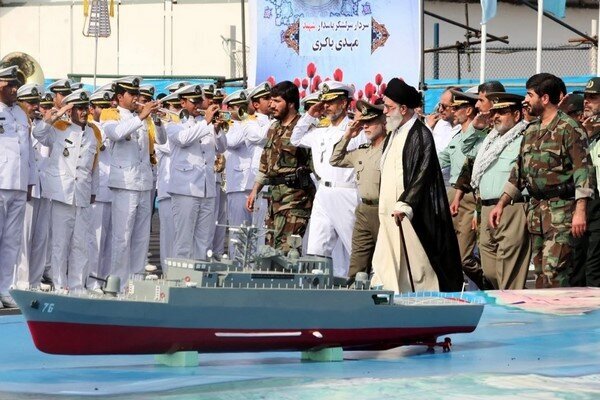Charting the Course: Saudi Arabia's Imperative for Strategic Naval Defenses Against Houthi and Iranian Threats
Introduction:
In the volatile waters of geopolitical tensions, the strategic significance of naval defenses cannot be overstated. As Saudi Arabia navigates the complex maritime landscape amidst escalating threats from Houthi rebels and Iranian provocations, the imperative for robust naval defenses becomes paramount. In this strategic discourse, we delve into the multifaceted challenges facing Saudi Arabia and elucidate the strategic imperatives for bolstering its naval capabilities.
Navigating Threat Waters:
The strategic chessboard in the Arabian Sea and the Red Sea has witnessed an escalation in maritime threats posed by Houthi insurgents and Iranian provocateurs. The proliferation of asymmetric naval tactics, including maritime mines, drone attacks, and missile strikes, underscores the need for Saudi Arabia to fortify its maritime defenses. As the custodian of vital sea lanes and critical maritime infrastructure, Saudi Arabia cannot afford to be complacent in the face of such threats.
Strategic Imperatives for Naval Defense:
Enhancing Maritime Domain Awareness: Saudi Arabia must invest in advanced maritime surveillance technologies, including radar systems, unmanned aerial vehicles (UAVs), and satellite imagery, to bolster its maritime domain awareness capabilities. A comprehensive understanding of maritime activities is essential for preempting and countering potential threats.
Building a Multi-Layered Naval Defense Architecture: Adopting a multi-layered approach to naval defense, Saudi Arabia should deploy a combination of surface combatants, coastal defense systems, underwater sensors, and aerial assets to deter and neutralize maritime threats. This integrated defense architecture will enhance the resilience and effectiveness of Saudi Arabia's naval capabilities.
Strengthening Regional Maritime Partnerships: Collaboration with regional maritime partners, including Gulf Cooperation Council (GCC) states, international naval coalitions, and maritime security organizations, is imperative for collective defense against common threats. Joint exercises, intelligence sharing, and coordinated patrols can enhance interoperability and deterrence capabilities.
Investing in Naval Modernization: Continuous investment in naval modernization and capability enhancement is essential to maintain a credible deterrent posture and project maritime power projection capabilities. Acquisition of advanced naval platforms, such as frigates, corvettes, submarines, and patrol vessels, equipped with state-of-the-art sensor and weapon systems, will ensure Saudi Arabia's maritime superiority.
Conclusion:
As Saudi Arabia confronts the evolving maritime security challenges posed by Houthi insurgents and Iranian provocations, proactive and strategic investments in naval defenses are imperative to safeguard its maritime interests and ensure regional stability. By adopting a holistic approach to maritime security, bolstering maritime domain awareness, building a multi-layered defense architecture, strengthening regional partnerships, and investing in naval modernization, Saudi Arabia can navigate the turbulent waters of regional geopolitics with confidence and resilience.
In conclusion, the strategic imperative for Saudi Arabia's naval defenses transcends mere maritime security concerns; it is a cornerstone of national sovereignty, regional stability, and global security. As Special Representative of the United Nations Conflict Resolution Committee (UNCRC), it is incumbent upon us to advocate for pragmatic and forward-looking strategies that promote peace, security, and prosperity in the maritime domain. Let us chart a course towards a safer and more secure maritime future for Saudi Arabia and the wider region.

Comments
Post a Comment